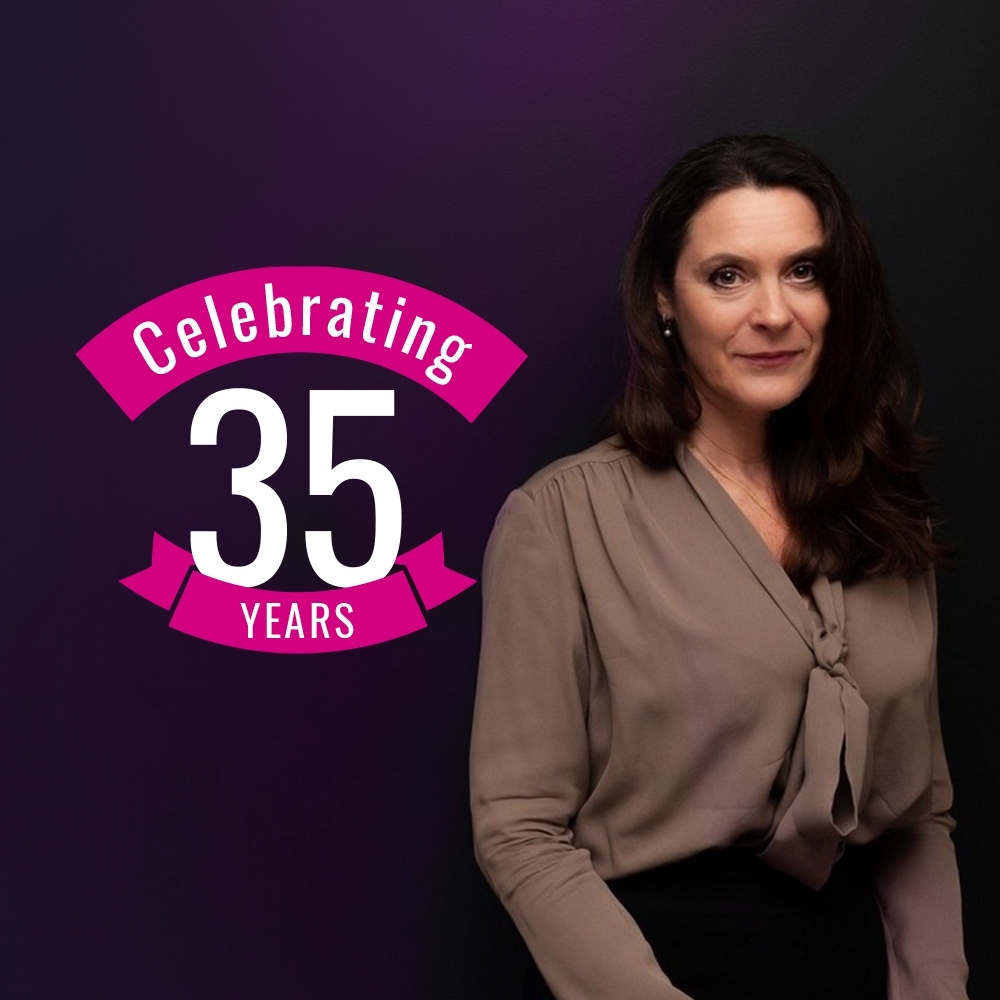13.12.2022
It’s now over 30 years since I joined the patent attorney profession. When I started, there were relatively few female patent attorneys, partly due to much lower numbers of women studying STEM subjects at university. I recall I was one of about six women in a cohort of 90 studying chemistry at Imperial College, and there were even fewer in the engineering departments. Today, thankfully there are more women in the profession – but there are still things we need to improve.
Thank you
As next year’s World IP Day on 26 April will focus on “Women and IP: Accelerating Innovation and Creativity”, this is a good time to reflect on the progress made, and what steps we still need to take.
Greater diversity in IP
I believe that Keltie is one of the leading firms of patent attorneys when it comes to equality, diversity and inclusion (EDI). For example, as of today, six of Keltie’s 17 partners (or 35%) are women, and women make up a similar proportion of fee earners across the firm. We have women in nearly all the firm’s departments and offices, and women represent about 40% of our engineering team.
In fact, since our firm was founded by David Keltie in 1988, EDI has always been at the heart of the firm’s culture, perhaps almost subconsciously from the outset as simply “doing the right thing”. David’s attitude was always: Everybody matters, and everyone should be treated equally and with respect. In encouraging EDI, it’s vital to have strong leadership and mentors and David was very much ahead of his time. Although sadly he passed away in 2016, continuing David’s legacy of a compassionate and inclusive workplace remains as important as ever. When we are recruiting, many candidates comment on the diverse make-up of our workforce and how that attracts them to the firm. Having a visible, diverse workforce increases diversity of applicants; it’s a virtuous circle.
Across the IP profession as a whole, in more recent times big strides have been made in encouraging women to become attorneys, thanks to initiatives such as IP Inclusive and Careers in Ideas and the leadership of our professional bodies such as CIPA and CITMA as well as the UK Intellectual Property Office. The IPO hosts a blog on inclusion and diversity, and a recent post included interviews with female patent examiners.
These initiatives have led to some real achievements, such as the promotion of gender-neutral language in legislation and regulation, greater promotion of the IP professions among recent graduates and the public generally, and much greater awareness of (unconscious) bias in recruitment.
Embracing remote working
Another positive development in the past few years has been the move to remote working and working from home. As any attorney knows, the frequently long hours required to meet inflexible deadlines makes it a challenging profession to be in, especially when combined with family responsibilities. But driven by the COVID-19 lockdowns, most IP firms are now set up to enable remote working, allowing more flexibility to suit personal circumstances, and Keltie certainly embraces this. The recent confirmation by the European Patent Office that holding oral proceedings by videoconference is now the default position is a significant milestone, removing the need for air travel, overnight stays and extended childcare to cover absence. Again, the impetus for this change was COVID-19 rather than any EDI considerations, but it is certainly a development to be welcomed by those with family responsibilities.
Flexible working is very important for women, especially those with young families. I was able to switch to four days a week when I had to juggle a young family and parents in declining health, which was a real help. However, you do have to be very organised and agile to ensure that official deadlines are met and clients’ queries are still answered promptly. I am lucky to have a number of clients who also work flexibly and therefore are understanding when an email does not get replied to within the hour! Good communication with clients is paramount when you are working flexibly.
Tackling the gender gap
Of course, despite moves towards equality in the home in recent years, the latest data suggests that in the UK nearly half of working-age women provide an average of 45 hours of unpaid care each week, while 25% of men provide just 17 hours. According to King’s College London, the gender gap in unpaid care peaks for women aged 25 to 44, the prime years for employment and career building.
I hope the above disparity between women and men will diminish with more employers accepting that men should play an equal role to women in family life. Importantly, if men can see that women are not held back in their careers by flexible working, it can only encourage more men to share the caring responsibility. So far, there seems to have been only a small uptake in the opportunity for shared parental leave since it was first introduced in 2015, but we are starting to see more interest in the firm and I believe this will become the norm in the not too distant future.
As for encouraging more women to join the profession, while we continue to see the number of women increase at all levels, there are a couple of areas in particular where there is more work to do.
More work needed
The first area to focus on is training and qualification. It takes several years of study and examination success to become a European patent attorney and a UK patent attorney (rightly so). Aside from absorbing much of the relevant law and its application in your day-to-day job, this still leaves a good deal of studying to be done in the evenings or weekends. I would encourage both men and women to start the process early in their career, as it can be hard to manage alongside any family responsibilities. Examinations are currently held just once a year, and there is no flexibility in timing.
The introduction in recent years of courses enabling applicants to become part-qualified over three or six months, and proposals to make the European Qualifying Examination more practical with shorter modular exams as well as holding the exams online, are therefore welcome. If we want to ensure the profession is truly inclusive, we have to make qualification as accessible as possible – without compromising the high professional standards that clients rightly expect.
The second area that remains a concern is the low proportion of women inventors. A recent study by the EPO found that just 13.2% of inventors named on European patent applications were women, while WIPO data put the figure for PCT applications at 17% in 2018. This is less than 1 in 5!
This is well below the proportion of women in STEM subjects and shows how much more work there is still to do to ensure women are properly represented in the patent system. While there are many prominent women in business and science (including Nobel Prize winners), that is not the case when it comes to the inventors named on patent applications. So it’s very welcome to see IP leaders, including USPTO Director Kathi Vidal, seeking to address this issue – as a recent article in Forbes explains.
Often, interest in joining the patent profession is piqued by involvement in research that leads to patent applications being filed, so these figures demonstrate that fewer women are exposed to the patent system at a time when they may be considering their career options. Increasing representation of women in the patent system should therefore lead to more women wanting to join the profession. Another virtuous circle!
Hopefully the focus of next year’s World IP Day will drive further change, and we will see the number of women inventors increase. That would be something we can all celebrate.

14.02.2024
The Gold Standard - Keltie Recognised in WTR 1000 2024Keltie's UK trade mark team has once again achieved the prestigious gold ranking in the WTR 1000 for trade mark prosecution and strategy. Keltie’s Irish team has also been confirmed in the silver ranking achieved last year.

05.12.2023
Keltie turns 35: A journey of innovation and excellence with Rosemary CardasHaving started her career in 1986 with an established trade mark and patent attorney firm, Rosemary joined David Keltie in founding David Keltie Associates, (now Keltie) in 1988. She became partner in 1994. She is a Chartered Trade Mark Attorney and a Member of the Chartered Institute of Trade Mark Attorneys
Thank you